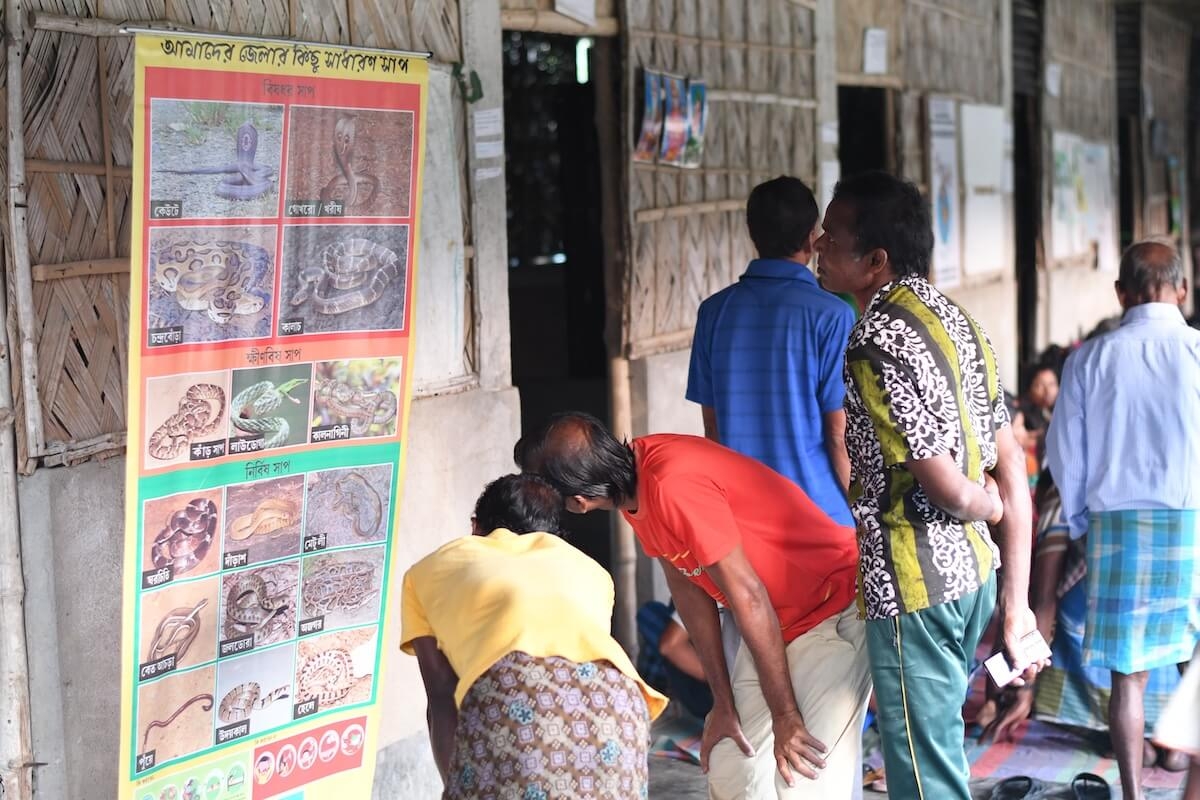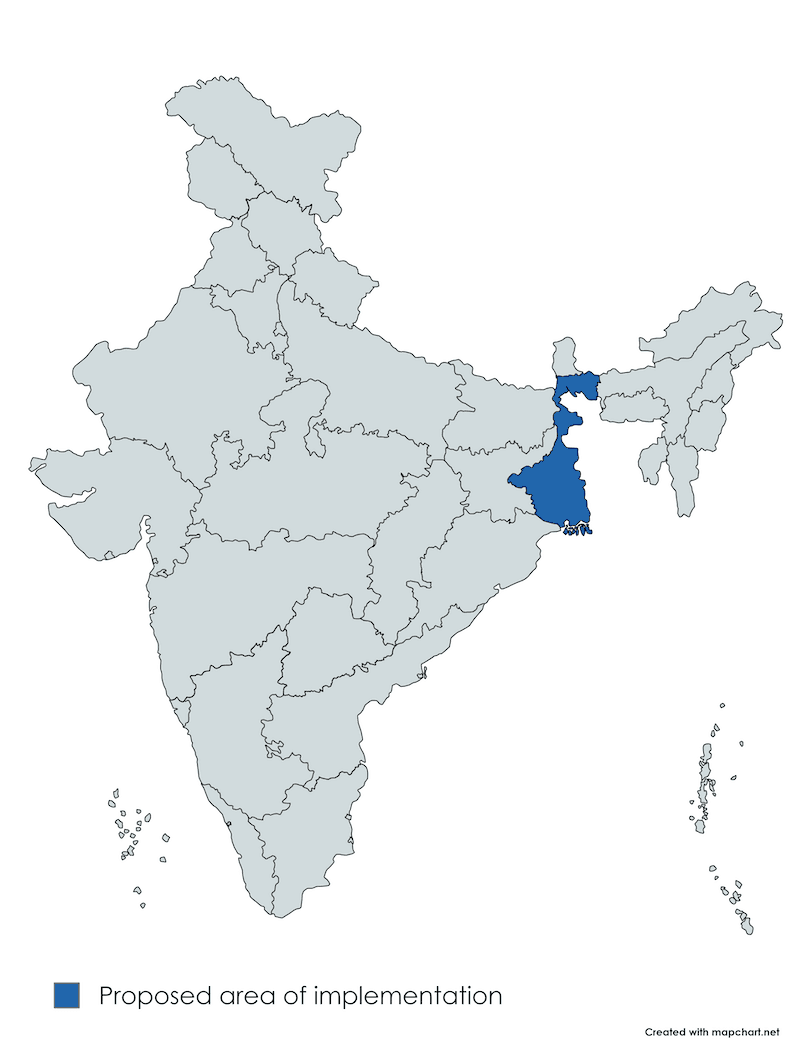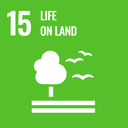
Integrating community health and snake conservation in the Sundarbans

Integrating community health and snake conservation in the Sundarbans
In rural West Bengal, the prevalence of snakebite-induced fatalities has instilled fear and eroded social tolerance towards snakes, leading to widespread persecution that poses a significant conservation threat for nearly 100 snake species. Through extensive outreach programs and workshops, this project endeavors to enhance community knowledge of snakebite management and promote prompt treatment-seeking behavior.


- (iv) Environmental Sustainability
- (i) Eradicating hunger and poverty
West Bengal
Funded Successfully
Project being executed
Executive Summary
In India, snakebite mortality rates are alarmingly high, claiming an average of 58,000 lives annually, with rural and peri-urban areas bearing the brunt of this burden. Limited knowledge of first aid and reliance on traditional healers often delay medical treatment, exacerbating the severity of snakebites and contributing to preventable deaths.
In rural West Bengal, the prevalence of snakebite-induced fatalities has instilled fear and eroded social tolerance towards snakes, leading to widespread persecution that poses a significant conservation threat for nearly 100 snake species. The Sundarbans region, known for its biodiversity, is particularly susceptible to human-snake conflict. Here, mortality rate due snakebites is one of the highest in West Bengal.
In 2023, HEAL has launched the 'Zero Death from Snakebites' initiative, a pioneering effort aimed at mitigating human-snake conflict and promoting snake conservation in the Sundarbans. The project is being implemented in Gosaba, a remote block bordering the Sundarban Tiger Reserve in South 24 Parganas district.
The project adopts a multifaceted approach and aims to engage two key stakeholders: villagers and first responders, including traditional healers and local doctors. Through extensive outreach programs and workshops, this project endeavors to enhance community knowledge of snakebite management and promote prompt treatment-seeking behavior. By empowering residents with essential first aid skills and increasing awareness of available medical resources, particularly the use of Anti-Venom Serum, the project aims to reduce snakebite-related deaths in Gosaba block.
Moreover, by fostering a greater understanding of snake behavior and the importance of conservation, HEAL seeks to cultivate tolerance towards snakes among villagers over time. This shift in perception is vital for the long-term coexistence of humans and snakes and the preservation of biodiversity in the Sundarbans.
Budget: 12 lacs for the 1st Year.